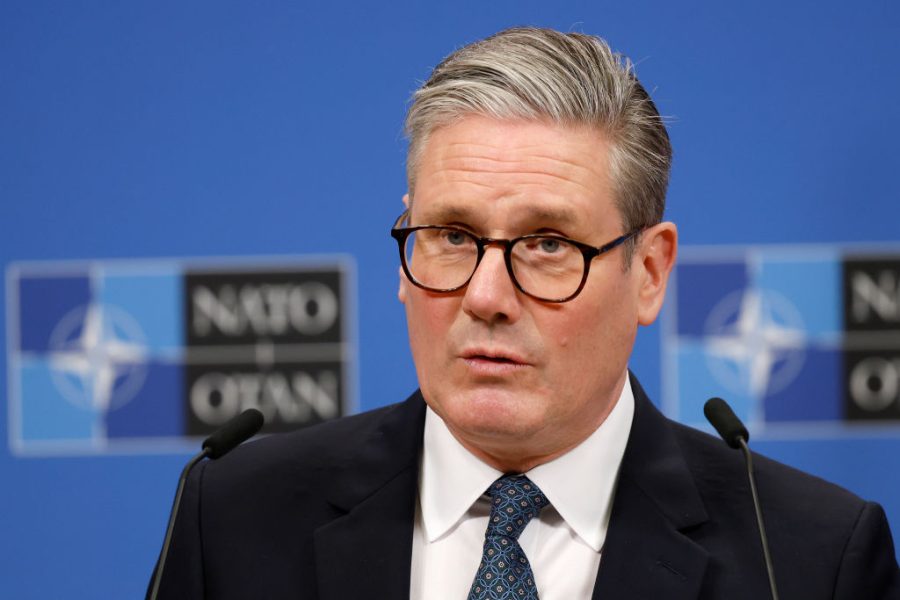There is joy in the presence of the angels of God over one sinner that repenteth. Only three weeks ago, Sir Keir Starmer was considering delaying increasing the United Kingdom’s defence budget until the next decade. ‘Whitehall sources’, a catch-all term of varying reliability, said that the Prime Minister regarded the political costs of cutting public expenditure elsewhere as too great: accordingly, defence, which everyone professes to believe is important but few are willing to prioritise, would have to wait.
Now the mood music has changed. The Sunday Times reports that Starmer intends to overrule Rachel Reeves and the Treasury in their insistence on no additional expenditure. Instead, the Prime Minister will hold to his party’s manifesto commitment to ‘set out the path to spending 2.5 per cent of GDP on defence’. The latest iteration of the Whitehall source said:
Many now believe the world is currently more dangerous than during the Cold War
In the end, it’s the Prime Minister’s decision on national security… the defence and security review will still do what we needed to do.
If this new steer proves to be accurate, it is welcome. The armed forces desperately need that increase in resources to try to make good a worrying number of capability gaps.
Nevertheless, we should not celebrate riotously. ‘Setting out a path’ to spending 2.5 per cent is meaningless until we know how long that path is. It should also be noted that this amount really is a bare minimum: service chiefs are reportedly pressing for 2.65 per cent, which is still modest.
The readiness of the armed forces is so poor that 2.5 per cent will allow little more than restoring the status quo, letting the Ministry of Defence to fulfil the commitments we have made and deliver the assets we claim to have available. That additional spending must start immediately, because the armed forces are currently stretched beyond endurance in a number of areas.
If Starmer does overrule his chancellor, he will have been prompted in part by the stark messages delivered last week by US Secretary of Defence Pete Hegseth, and underlined by President Trump and Vice-President Vance. Between them, they have made it clear that Europe must contribute much more to its own security and that the ultimate safety net of American military might can no longer be taken for granted. As Hegseth said, the United States will no longer ‘tolerate an imbalanced relationship’ with Europe in defence spending. He added that ‘safeguarding European security must be an imperative for European members of Nato’.
Donald Trump’s devotees will point to the transformative effect of his bullish, no-nonsense rhetoric and argue that his brutal honesty has forced European countries to confront the uncomfortable truth that they must spend substantially more money on defence. Just like his angry outburst about ‘delinquents’ at the Nato summit in Brussels in July 2018, they will argue, it has taken the shock of Trump’s unapologetic candour to force the alliance to take action rather than simply promise it.
There is undoubtedly a twist of truth to that hypothesis. But even if the Treasury is forced to give the Ministry of Defence more money than it had originally planned, this is not a story of happy-ever-after. America’s announced strategic reorientation was never a tool to nudge the defence budgets of her allies upwards by a few tenths of a percentage point, but a brutally self-interested reordering of priorities.
If European Nato members face not only a significant drawdown of American forces – US Europe Command currently has more than 100,000 personnel deployed – but also the US’s decision to effectively opt out of Article 5’s collective security obligations, they will have to rethink their military commitments from first principles. Trump has spoken publicly of expecting Europe to spend 5 per cent of GDP on defence, a number probably snatched impulsively from the ether; but for most Nato members that would mean more than doubling their current budgets.
Privately, European leaders admit that the United States pays for something like half of Nato’s overall capabilities. If Sir Keir Starmer is siding with the heads of the armed forces against the parsimonious, Gradgrindian Treasury mandarins, it is the first step of a very long journey.
Many now believe the world is currently more dangerous than during the Cold War. Before the so-called ‘peace dividend’ was cashed after 1990, the UK spent 4 per cent of its GDP on defence and maintained armed forces of just over 310,000 personnel. Today, the number is less than half that. Technology means that the same kind of lethality could now be achieved with fewer personnel, but it still hints at the quantum we might have to consider.
Rejecting the Treasury’s preferred level of expenditure would be a welcome line in the sand, but the leadership and influence to which ministers have openly aspired needs a transformation in defence spending and effective use of resources by the MoD. This must be the first step with which the proverbial 1,000-mile journey begins.








Comments